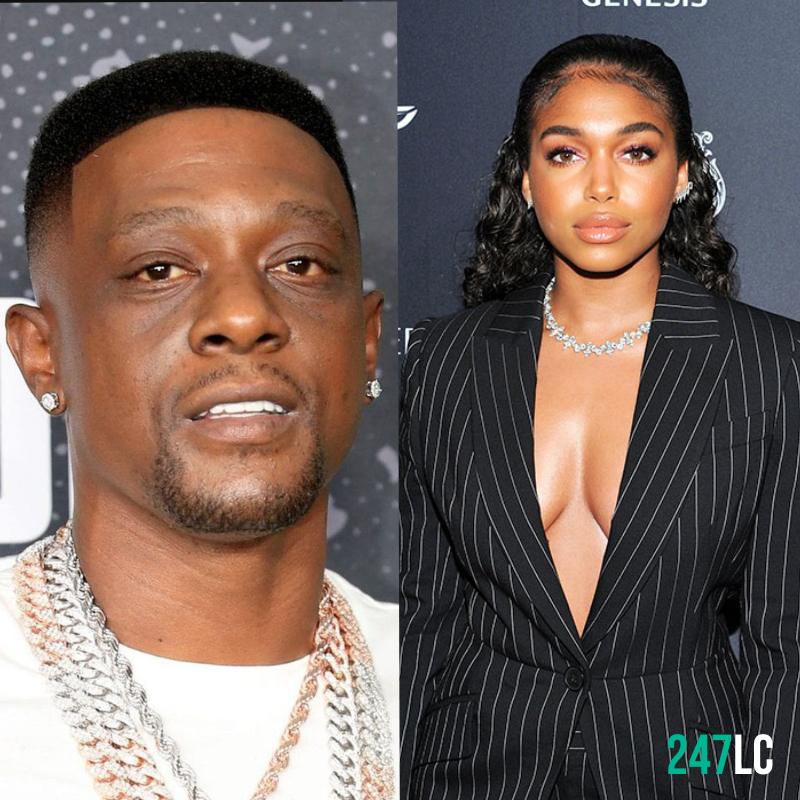Respect the WAP: Boosie, Lori Harvey, and Rap's problem with Slut-Shaming Women
By: Alexis Oatman
In a recent interview with Vlad TV, rapper Boosie Badazz offered his thoughts on Lori Harvey’s “body count” and her new relationship with actor Michael B. Jordan.
The 38-year-old Louisiana native went as far as to say, “I’d sleep with her, but never marry her,” after DJ Vlad proceeded to go down a list of Lori Harvey’s famous past suitors from Trey Songz, Future, and even Diddy.
“I think we need to stop giving the women the power with situations like this,” Boosie added. “We gotta start giving the bachelors, the men, who are running through a beautiful woman like this the credit, who not housing her, running through her.”
Boosie on Lori Harvey's Body Count: I'd Sleep with Her But Never Marry Her (Part 22)
For women, sex will always be something that happens to us, not something that we choose to engage in. The issue lies when women decide to take charge of their sexual autonomy, only to be labeled a “slut.”
Here we go again. Sadly, this is nothing new. Rap music, a long-time reflector of society, has a long history of portraying women, particularly Black women, as “sluts” and sexualized objects only to turn around and demonize for engaging in said act.
When Cardi B and Megan the Stallion released “WAP,” the world was shocked and disturbed at two women, women of color at that, talking about sex and their bodies so explicitly.
Slut-shaming is the archaic process of criticizing women and girls who perceive to violate societal expectations regarding sexuality. These degradations, often double standards, range from criticizing women for wearing “sexy” clothing or having multiple sex partners.
However, for men, whether it's Snoop Dogg’s saying “Bitches ain’t shit, but hoes and tricks” in Dr. Dre’s hit classic “Bitches Ain’t Shit” to even Three 6 Mafia winning an Oscar for “It’s Hard Out Here For a Pimp,” Hip Hop not only allows the sexual exploitation of women for the male gaze but awards men in the process.
In the article, Misogyny in Rap Music: A Content Analysis of Prevalence and Meanings, Ronald Weitzer and Charis E. Kubrin suggested that “larger gender relations, the music industry, and local neighborhood conditions” are the three primary forces behind why women are portrayed so negatively throughout Rap.
The scholars note that Hegemonic masculinity is at the root.
This form of masculinity hangs on the idea that men hold the dominant position in society, leaving women at the bottom. In this context, being a “real man” means to support attitudes that perpetuate women’s sexual objectification, the practices that subordinate them, and derogating men who adopt an egalitarian approach to gender inequality issues.
The fragility of Black masculinity cannot risk being perceived as “soft” or fake.
As a result, Black male rap artists will create explicit and violent lyrics against women to assert their dominance and prove their authenticity as a “real man.”
In our community, the sexual conquests of young men are revered while it demonizes our women and girls, labeling them “fast.”
Due to society’s implications about sex, young black men will often use the graphic tells of their exploits for social status and esteem—the goal of these intended conquests to make a fool of women. Sex isn’t seen as a testament of affection, but a form of control, a way of keeping women in line.
A more in-depth look into the street male culture will show you that Black hypermasculinity is due to the historical socioeconomic disadvantages which have stripped Black men of traditional sources of dignity in a white patriarchal system.
As a woman and a rap fan, I’m tired of the patriarchy.
I was six years old in the back of my dad’s Ford Taurus when the “Bridge is Over” by KRS One came on. My dad was fan of 80s Hip Hop, he called it the “Golden Era”. The beat knocked from his stereo system, rattling around through my brain. I was in love, and I was now a fan. Today, the genre has long separated from being the voice of the people and expanded into a multi-billion-dollar industry intent on objectifying women as sexual beings.
I think more men in Rap and Hip Hop need to acknowledge their privilege and stop using women as muses to fulfill their misogynistic lyrics about objectifying women. Of course, this isn’t just a problem in the world of Rap. Patriarchy is a societal problem affecting us all.
As Feminist scholar, Bell Hooks said, “Feminism is for everybody.”






